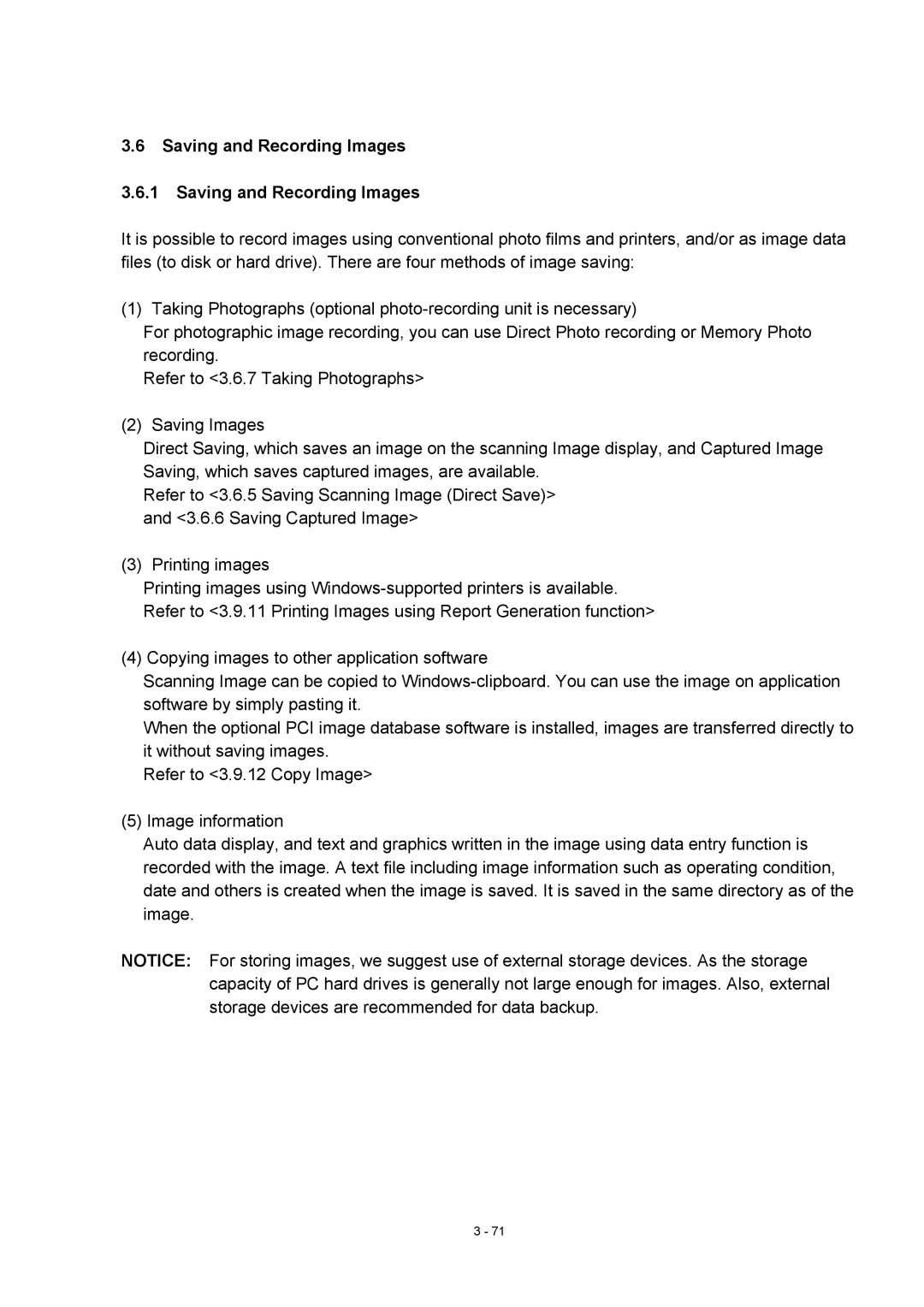3.6Saving and Recording Images
3.6.1Saving and Recording Images
It is possible to record images using conventional photo films and printers, and/or as image data files (to disk or hard drive). There are four methods of image saving:
(1) Taking Photographs (optional
For photographic image recording, you can use Direct Photo recording or Memory Photo recording.
Refer to <3.6.7 Taking Photographs>
(2) Saving Images
Direct Saving, which saves an image on the scanning Image display, and Captured Image Saving, which saves captured images, are available.
Refer to <3.6.5 Saving Scanning Image (Direct Save)> and <3.6.6 Saving Captured Image>
(3) Printing images
Printing images using
(4) Copying images to other application software
Scanning Image can be copied to
When the optional PCI image database software is installed, images are transferred directly to it without saving images.
Refer to <3.9.12 Copy Image>
(5) Image information
Auto data display, and text and graphics written in the image using data entry function is recorded with the image. A text file including image information such as operating condition, date and others is created when the image is saved. It is saved in the same directory as of the image.
NOTICE: For storing images, we suggest use of external storage devices. As the storage capacity of PC hard drives is generally not large enough for images. Also, external storage devices are recommended for data backup.
3 - 71
